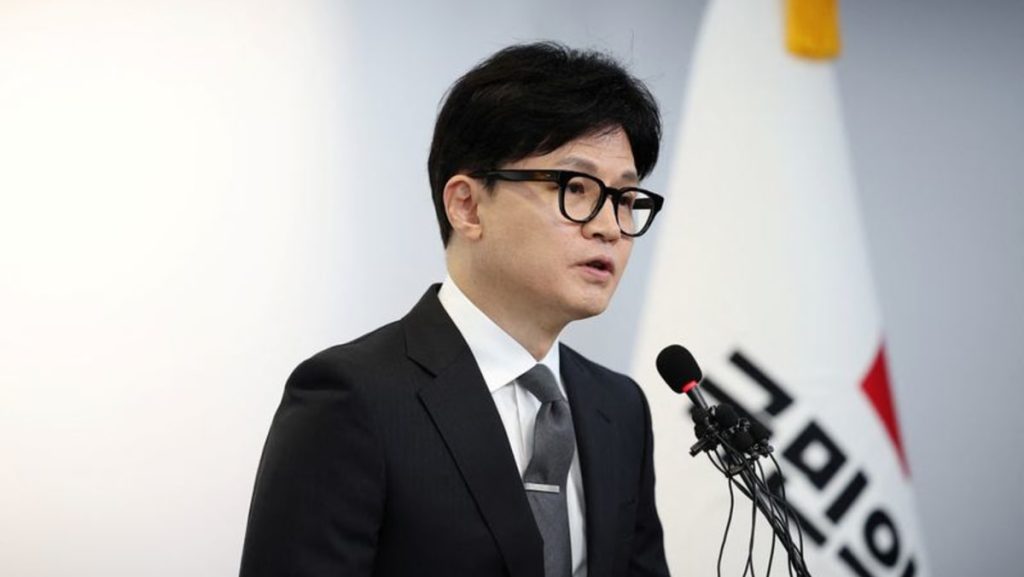The political landscape of [Country Name – information missing in the provided text] was thrown into turmoil as President Yoon Suk-yeol faced mounting pressure to resign following a controversial attempt to impose martial law. The situation reached a boiling point with the president’s televised address on Saturday, his first public appearance since rescinding the order. In his address, a somber Yoon offered a qualified apology, expressing remorse for the disruption caused by his actions, but stopping short of a full admission of wrongdoing. He used the phrase “very sorry,” indicating a degree of contrition, yet the statement lacked specifics regarding the rationale behind the martial law declaration or a clear outline of future actions to prevent a recurrence. He deferred the handling of the political fallout, including the critical question of his own tenure, to his party, the People Power Party (PPP), further fueling speculation about his imminent resignation. This deferral was widely interpreted as a tacit acknowledgment of his weakened position and an attempt to manage the crisis through the party apparatus rather than direct presidential action.
The president’s address, rather than calming the storm, appeared to exacerbate the crisis. Prime Minister Han Duck-soo, a key figure in the administration, publicly declared that Yoon was no longer capable of fulfilling his presidential duties, making his resignation unavoidable. This stark assessment from a high-ranking official within Yoon’s own government signaled a decisive shift in the political dynamics, effectively isolating the president and amplifying calls for his removal. Han’s statement solidified the perception that Yoon had lost the confidence of his inner circle and significantly weakened his ability to govern effectively. It underlined the gravity of the situation and the unprecedented level of internal dissent within the administration.
The escalating tension preceding the address had been palpable. Just a day prior, Prime Minister Han had intensified the pressure on Yoon, publicly branding him a danger to the nation and demanding his removal from office. This highly unusual public rebuke from a prime minister underscored the depth of the political rift and the rapid deterioration of support for the president within the government itself. It reflected a growing consensus that Yoon’s actions had irrevocably damaged his credibility and his ability to lead. This unprecedented level of public criticism from within the administration set the stage for a dramatic showdown and signaled the potential for a swift and decisive resolution to the crisis.
The impeachment proceedings initiated against President Yoon highlighted the deep divisions within the political landscape. While the opposition parties rallied behind the impeachment motion, the ruling PPP largely boycotted the vote, demonstrating the complex internal dynamics within the party and the delicate balance of power. This boycott effectively shielded Yoon from immediate removal, suggesting a degree of residual support within the PPP, or perhaps a strategic calculation to manage the transition of power. The lone PPP member who participated in the vote cast his ballot against impeachment, despite expressing reservations about Yoon’s suitability for office. This ambivalent stance underscored the internal conflict within the party and the struggle to reconcile loyalty to the president with concerns about his leadership.
The political crisis surrounding President Yoon underscores the fragility of democratic institutions and the importance of checks and balances. The attempt to impose martial law, followed by the president’s ambiguous apology and the subsequent calls for his resignation, created a climate of uncertainty and highlighted the potential for abuse of power. The prime minister’s unprecedented public denouncement of the president further emphasized the seriousness of the situation and the erosion of trust in the executive branch. The unfolding events served as a stark reminder of the importance of maintaining a vigilant citizenry and a robust system of accountability to safeguard democratic principles.
The implications of this political crisis extend beyond the immediate future of President Yoon. The events have exposed deep divisions within the ruling party, raising questions about its ability to govern effectively and potentially paving the way for a period of political instability. The crisis has also fueled public debate about the appropriate use of emergency powers and the importance of transparency and accountability in government. The long-term consequences of this turbulent period will likely shape the political landscape of [Country Name] for years to come, potentially leading to reforms in governance and a renewed focus on strengthening democratic institutions. The nation now faces a period of uncertainty as it grapples with the fallout from this crisis and charts a course forward.

